News for 31 January 2021
All the news for Sunday 31 January 2021
Uganda confirm participation in Cup of Nations qualifiers
By Agnes Makhandia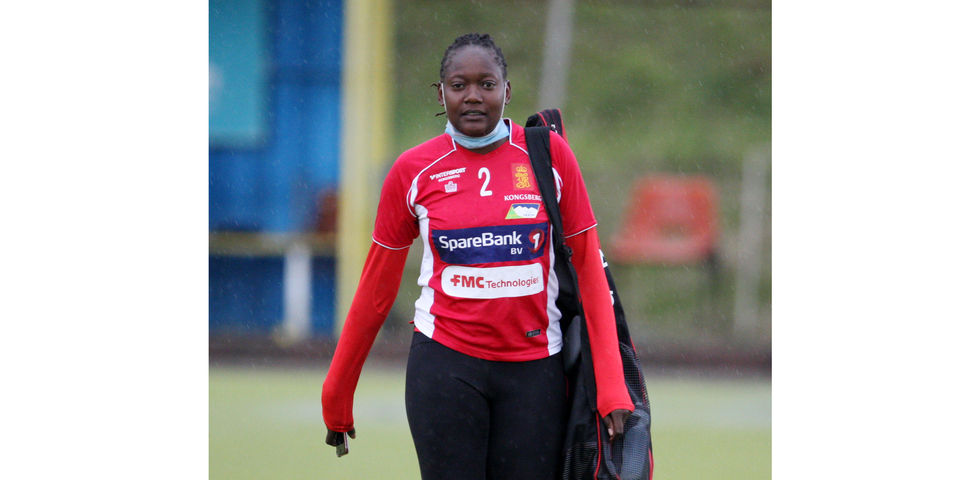
Kenyan National women's hockey captain Gilly Okumu after a training session at the City Park Stadium, Nairobi on January 12, 2021. Chris Omollo | Nation Media Group
Uganda is the first country to confirm participation in men and women's North-East Africa region qualifiers for the Africa Cup of Nations scheduled for March 1 to 7 at Sikh Union Stadium in Nairobi.
Egypt, Burundi, Libya, Seychelles, Sudan, and Tanzania are yet to confirm participation in the women's category while Burundi, Libya, Sudan, and Tanzania, have not confirmed in men's category.
Kenya Hockey Union (KHU) secretary general Wycliffe Ongori said the union expects Kenya coaches to whittle down their squads by next week.
"Uganda confirmed their participation last Wednesday and we hope other nations will follow suit. We remain hopeful the government will support us stage a successful event.
"Players have been having open sessions at City Park Stadium but with only one month to the event, we hope the tacticians will give us the provisional squads before they name the final squads," said Ongori.
Ongori at the same time said they are engaging a leading media company to broadcast the seven-day event.
"Considering the coronavirus health restrictions, we want our fans to have a feel of what will be happening at the Simba Union. Once we seal the deal, we will inform African Hockey Federation (AHF) because the rights belong to them," said Ongori.
The top two nations in each category at the end of the event will qualify for the Cup of Nations to be held in October at a yet to be decided venue.
Daily Nation
McFerran sees visible improvements after year away from Green Army
Ayeisha McFerran reflects on the recent Irish tour to Murcia, how the side are coping with Olympic uncertainty and getting back into competitive action in the Netherlands with SV Kampong
Ayeisha McFerran during Kampong’s 2-2 draw with Oranje-Rood before Christmas. Picture: Bert van der Toorn/World Sport Pics
After almost a year away from her Irish team mates, Ayeisha McFerran says positive changes were visibly apparent in Murcia last week, saying coach Sean Dancer used the time well to put his own imprint on the side.
The goalkeeper was unable to link up with the panel for the guts of 2020 with her SV Kampong club commitments and travel restrictions seeing her staying in the Netherlands for an extended period.
It meant her longest stint apart from the Green Army in the guts of five years and she told the Hook there have been some noticeable developments beyond simply personnel.
“It was weird being so long,” the 2018 FIH Goalkeeper of the Year nominee said. I did kind of slotted back into the team as normal but a lot has changed. “It was initially quite hard coming back into it because they have progressed so much and I haven’t really been involved but soon it was like I had never left.
“[From afar], I probably was aware of most of the changes but the team, on the pitch, has progressed a lot. It could have been very easy for a lot of them just to sit back, especially with the year that it was in it.
“The most important thing was getting back into the international hockey again, especially for me being away for so long. It’s so good to see us going forward and being threatening in front of goals.
“Like when was the last time we put more than 10 goals past Spain in a test series? Sean has finally had a long period of time with the team; he’s been able to implement some of the ideas and stuff, tighten it up and refine them.
“Some things are always going to be a little bit rusty but, sure, that’s what they’ve been yearning for, especially getting the trips away.”
Off the pitch, there were social distancing limitations on the usual team-building events they could do and while the Murcia sun initially allowed them to engage in competitive games outdoors, a new Spanish lockdown curtailed that, too.
But McFerran says the diligent approach to safety protocols should lay a template to aid other international camps going ahead in the Olympic run-in.
To that end, the side have also been working with psychologists on how best to manage the bombardment of conflicting information over whether Tokyo 2021 will go ahead.
“There’s so many rumours coming out from Japan, people saying this and that and whatever. But we’ve decided, as a team that we’re going to be prepared no matter what.
“We’re going in with the aspect of it’s going to happen. When you have the idea that it may not happen, it may not it just causes so much stress, anxiety and energy that as an athlete, you don’t need.
“No matter what happens, we’re going to be in the best shape possible that we can be and we’re going to control what we can control. It’s the only way to look at it.
“Of course, it’s always one of those things where it’s easier said than done. And that’s where, as a group, we’ve got a really strong collective where we all have the same goal and all know what we want.
“If anyone does have an off day or whatever, they could just pick up the phone or text; we all know we can do that with each other.
“We know what our path is, right now and so we’re all committed to staying on that. There’s always there always are going to be doubts and moments in time where individuals may think differently, but we always ultimately come back to what we’ve agreed and what we’ve planned together.”
For now, McFerran is back with Kampong, looking ahead to the Hoofdklasse’s return on Sunday with a date against Laren in a six-pointer near the bottom of the table.
It comes amid a backdrop of a national curfew which has led to riots in the evenings across most of the country but not in Utrecht where she is based.
“It is a pretty calm city. Pretty much everywhere else, they have upped the police presence about the place but it hasn’t really hit here so hopefully it stays that way!”
The games go ahead under strict protocols. The Dutch government cut short the Hoofdklasse after seven rounds before Christmas but the hockey federation – the KNHB – and players argued strongly to get the competition back up and running with the governing body picking up the tab to make it happen.
“To start back training with your team, you have to get tested. Every Sunday before a game or anytime you play a game, you get tested that morning by doctor at the clubhouse. You have to wait for your result coming back and then, if it’s negative, you can progress to the changing rooms.”
It means clubs could lose key players in the hours before their games, increasing the importance of limiting interactions outside hockey.
“Definitely there is that potential. We’ve all discussed we want to keep playing hockey as long as possible. We have to take care of outside life and do what we need to do.
“Everyone wants the league to go ahead and everyone wants to keep playing. We’re very fortunate and definitely not taking advantage of the situation we have.
“I am sure some of the Irish girls at home are probably a little bit jealous that we’re able to get some games under the belt. We’re just very fortunate over here that the government has put protocols in place that has allowed it to happen.
“In Holland, its such a big part of life and they see the enjoyment with not only us playing but people watching as well, albeit from home instead of in the stadium but it’s still important for them to see it!”
***
McFerran’s Kampong club mate David Harte is also back in action this weekend in a huge clash against men’s league leaders HC Bloemendaal.
The Kinsale man was announced this week as one of 20 Olympians to complete the World Academy of Sport’s Athlete Friendly Education Centre Assessor training programme
The programme aims to provide more support and continue to grow the AFEC schools project and network. The WAoS AFEC project accredits schools which provide flexible learning pathways combined with excellent support services to student-athletes.
The Olympians were selected for the training programme from a pool of more than 170 applicants.
David Harte, who is also a member of the Olympic Federation of Ireland’s Athletes’ Commission is also the secretary of the European Olympic Committees’ Athletes’ Commission.
Speaking about completing the course, Harte said: “I’m absolutely thrilled to have been selected to participate in this really important intiative for athletes.
“Considering the high calibre and quantity of applicants, I’m honoured to have been chosen to play a role in making sure that athletes can compete at the top level while continuing their education, and I’m grateful for the opportunity.”
The Hook
MHC to focus on 5s ahead of YOG challenge
By Jugjet Singh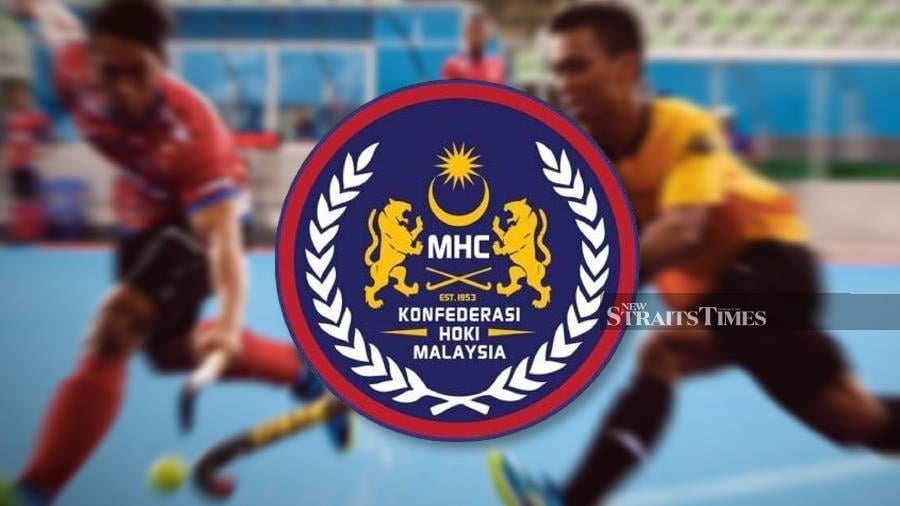
The Malaysian Hockey Confederation (MHC) had planned several hockey 5s tournaments last year, but the Covid-19 pandemic disrupted their initiative. - NSTP file pic
HOCKEY 5s tournaments in the country may finally get off the drawing board as its committee met online yesterday to re-draw a comprehensive plan.
It is a move to develop a strong hockey 5s team following Malaysia's surprise win at the 2018 Youth Olympic Games (YOG) in Argentina.
In the final in Buenos Aires, Malaysia upset India 4-2 for the title.
The Malaysian Hockey Confederation (MHC) had planned several hockey 5s tournaments last year, but the Covid-19 pandemic disrupted their initiative.
Hockey 5s, a small-sided outdoor game, was introduced in 2014 and made its YOG debut the same year in China.
Since then, the event has been growing in popularity internationally.
The inaugural 16-team men and women's Hockey 5s World Cup will be hosted in 2023.
"We had an online meeting today to discuss probable dates for the Under-11, Under-15 and Under-23 tournaments. It is to groom players ahead of our mission to defend the Youth Olympics gold medal," said MHC high-performance and hockey 5s committee chairman Hasnizam Hassan yesterday.
Senegal will host the YOG on Oct 22-Nov 9 next year.
"We are planning to hold the Under-23 tournament in Terengganu immediately after the Malaysia Hockey League (MHL)."
The MHC may host the MHL in March if the Covid-19 situation in the country gets better.
"The Under-11 and Under-15 tournaments are planned for October with the venues yet to be decided," Hasnizam added.
New Straits Times
Independent India’s historical tour of East Africa 1947-48
On 30 January in 1948, Father of the Nation Mahatma Gandhi was assassinated. That time the Indian men’s hockey team led by Dhyan Chand was touring East Africa. They came to know the assassination when in Dar-es-Salam, Tanganyika. More such details in the meticulously researched article – Editor
by Dil Bahra (UK) and Del Mudher (Kenya)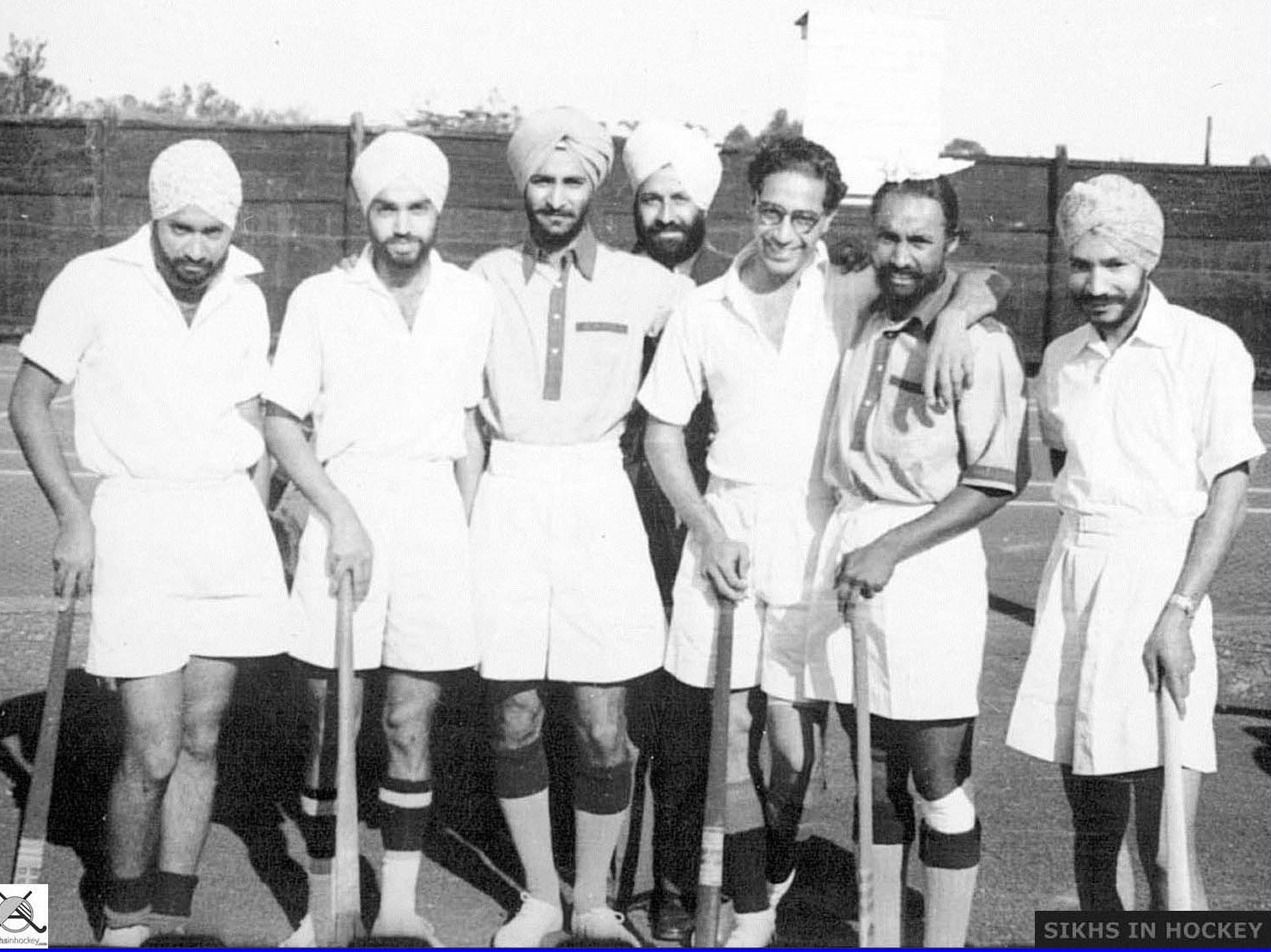
India’s first overseas tour after Independence was to British East Africa in December 1947. Hockey in Kenya during that period was run by The European Hockey Association of Kenya and The Asian Sports Association of Kenya until Hockey Association of Kenya (H.A.K.) (later renamed as Kenya Hockey Union [K.H.U.]) was formed on 2nd June 1949.
The Kenya Asian Sports Association, which was founded on 4th August 1912, was the biggest sporting organisation in the country. The leading clubs of the Association in Nairobi were Asian Civil Service Club; Sir Ali Muslim Club; Goan Gymkhana; Goan Institute; Sikh Union; Railway Goan Institute and Railway Indian Institute. Goan Sports Association Kenya was founded in 1945, although Goan Institute was in existence since 1905.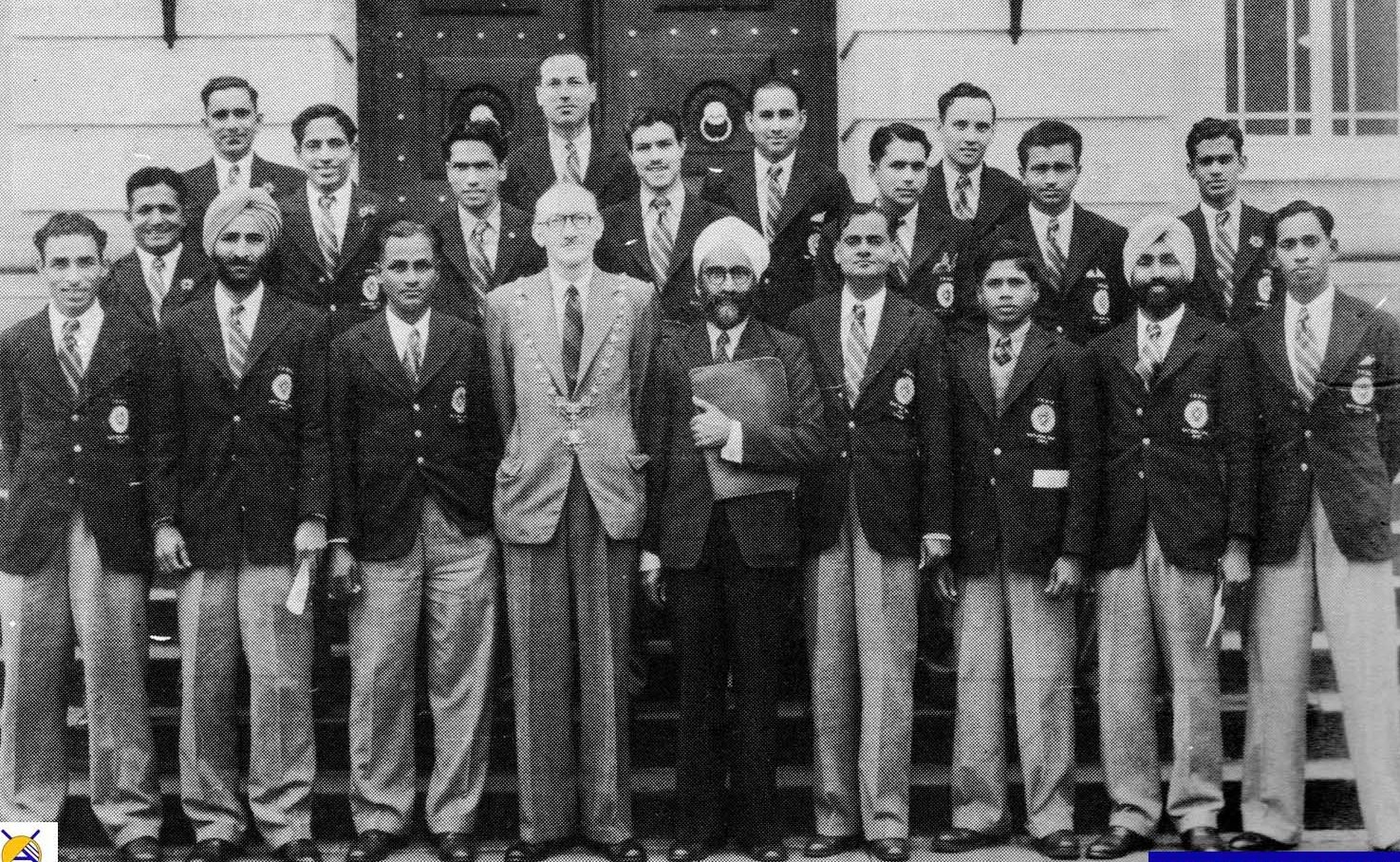
Indian team outside the Town Hall, Nairobi, Kenya, Circa Dec.1947. Standing front row (l-r): Kishen Lal; Gurbachan Singh; Dhyan Chand (Capt); Sir Richard Woodley (Nayor of Nairobi); Mahan Singh Sandhu (President, Asian Sports Association; S K Sinha (Joint Manager); M.Rajagopal; Manna Singh and Francis. Photo: Sikh Union Club Nairobi, Digital Archives
The annual report on the Colony and Protectorate of Kenya for the year 1947 shows that on 31 January 1947 the proportion of the various races to the total non-native population was Europeans 17.7% (23,284); Indians 59.8% (78,588) and Goans 4.5% (5,993).
The Europeans had been the dominant community with political power bearing no relation to numbers but enabling them to influence all aspects of the colony’s life in their favour.
An Indian tennis team had toured Kenya in 1936 and since then the Asian Sports Association were trying to arrange a tour by some other team from India. Protracted negotiations were conducted in 1945 through Captain Naidoo for a cricket team but without success.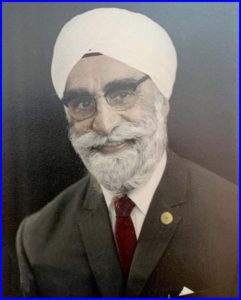
Mahan Singh Sandhu
Mahan Singh Sandhu, who was born in Punjab, India in 1902, immigrated to Kenya in 1921. He was a very passionate hockey player, coach and administrator. He was one of the founders of Sikh Union Club, Nairobi, and through the club he helped develop hockey in East Africa. He was a patron and a past president of the club.
Sikh Union Club one of the top clubs in Africa in the 20th century and the club was Kenya Hockey’s backbone at the Olympic Games during a golden period in the 1950s, 60s and 70s when Kenya was a powerhouse in world hockey.
During a visit to India in 1946, Mahan Singh Sandhu, who was at the time the president of Asian Sports Association, held talks in Bombay with Naval H. Tata who had recently been elected President of the Indian Hockey Federation (I.H.F.). As a result of this meeting, a tour to East Africa by the Indian hockey team the following year was agreed upon.
Mahan Singh Sandhu had agreed that Asian Sports Association would meet all the travel and accommodation charges for 17 players and two officials and also pay the touring party expenses. He took an undertaking with the IHF that the team would travel first class throughout the tour.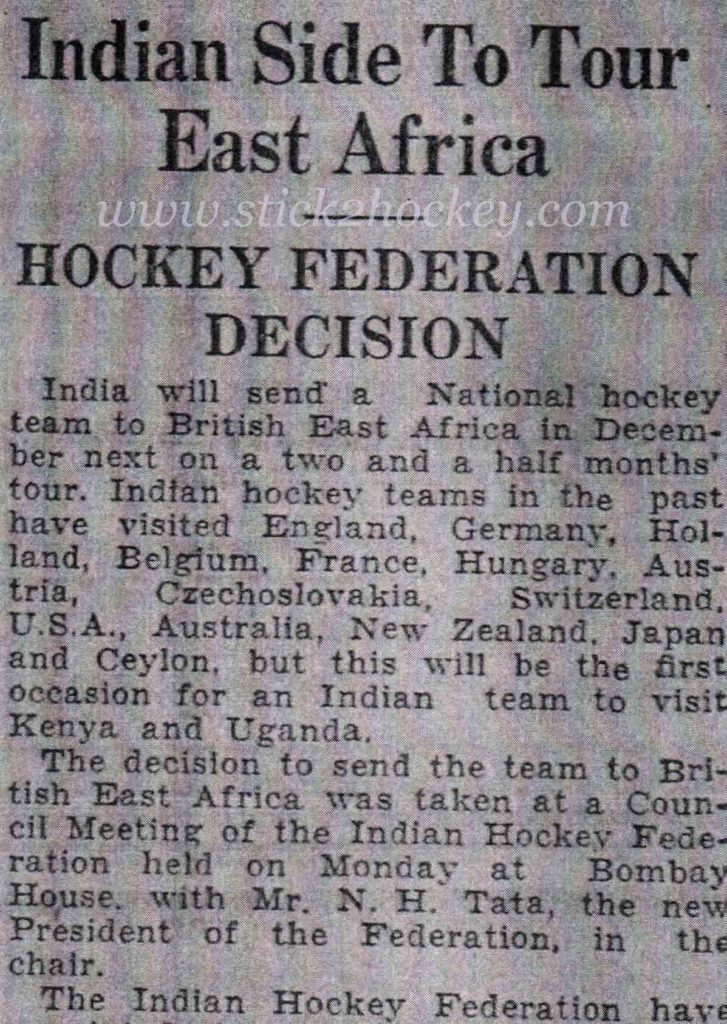
IHF decides.K. Arumugam collection
A liaison committee for the Indian tour was established by officials of the Asian Sports Association and Hockey Association of Kenya which consisted of:
Mr Mahan Singh Sandhu as chairman; Mr Harbans Singh Sehmias, secretary; Mr N. R. Norbury, assistant secretary and Mr G. N. Shah, treasurer. Hon. F.W. Carpenter; Mr W. Boddy; Mr E.J. Cohen and C. C. Ferrao were committee members.
Pamphlets announcing the tour and appeal for funds were distributed to all the hockey centres in Kenya on 24th June 1947. One interesting note in the pamphlet read:
“Never before in this country was there a cause so near the sportsman’s hearts and welcome to the sports institutions as this one. Through your efforts, gentlemen, is being written a new chapter in the history of British East Africa. Think of the service you render to Mother Country and unite yourselves. Make the tour a SUCCESS.”
Mahan Singh added in his circular to all the centres who would be hosting the team, that, besides the undertaking that the Indian team will travel first class on the tour, “there are good reasons that the representatives of India in hockey should go about in this country in a manner befitting the status and dignity of the country they represent”.
The original team submitted to the Kenya Asian Sports Association by the IHF included A.I.S. Dara (Punjab) and Abdul Quayum (Delhi). A few months before partition, Dara had captained a unified Punjab team that won the National championship in Bombay. Both withdrew from the tour following the partition in August 1947. Both players went on to represent Pakistan at the London 1948 Olympic Games, with Dara who had played alongside Dhyan Chand for India at Berlin 1936 Olympic Games captaining the Pakistan team. The joint-managers in the original team submitted, Professor Sri Ram and Mohammad Hamiduddin were also replaced.
The Indian team was selected by an I.H.F. Committee which was Dr A.C. Chatterji (I.H.F. secretary); Mr Lourdes Pereira (Bombay); Mr Barkat Ali (Madras); Mr Siri Ram (N. F. Province) and Mr P. Gupta (Bengal)
The Indian touring team was:
1. Leo Pinto (Bombay), goalkeeper
2. Ranganathan Francis (Madras), goalkeeper
3. Walter D’Souza (Bombay), back
4. Randhir Singh Gentle (Delhi), back
5. Mushtaq Ahmed (Bengal), back
6. Keshav Chandra Dutt (Punjab), half-back
7. B. Kapoor (Bengal), half-back
8. Maxie Vaz (Bombay), half-back
9. Lt. Manna Singh (Gwalior), half-back
10. R.J. Carr (Bengal), forward
11. Kunwar Digvijay Singh ‘Babu’ (U.P.), forward
12. Kishan Lal (Bombay), forward
13. Pat Jansen (Bengal), forward
14. Gurbachan Singh (Punjab), forward
15. Lt. Abdul Shakoor (Bhopal), forward
16. M. Rajagopal (Mysore), forward
17. Lt. Dhyan Chand (Army), forward
S.K. Sinha (Bengal) and B Pearce (Bombay) were appointed joint-managers of the touring party.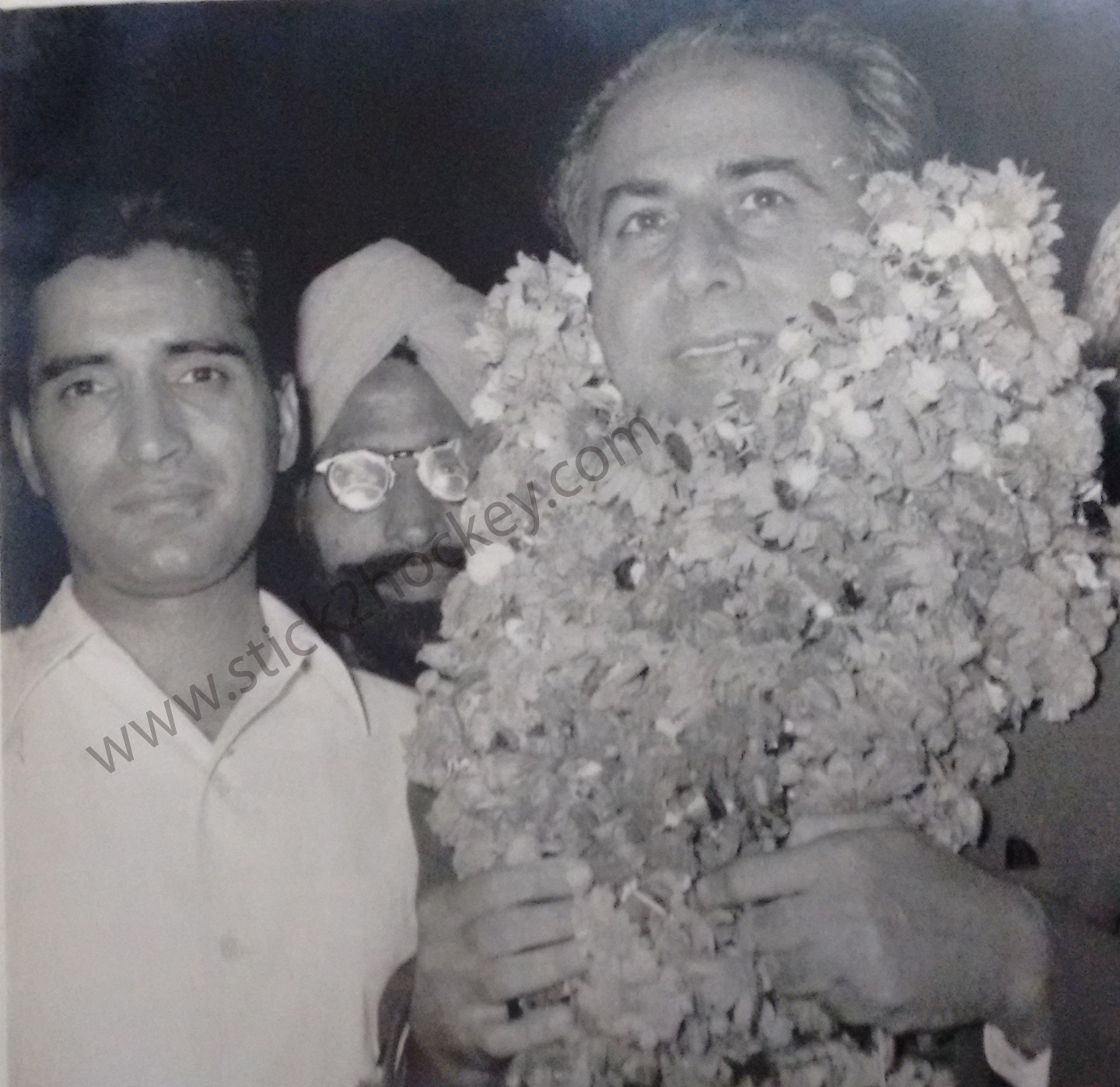
IHF President, Naval Tata. Photo KA
Before the team sailed for East Africa, Naval H Tata sent each player a personal note “The East African Indians want to treat your team as an ambassadorial side, visiting Africa with a view to impressing the European population of East Africa of the high standard of education, culture and ability to mix freely with confidence in social circles. Your mission is not merely to win matches, but after giving a good account of your proficiency in the game, you are expected to create an impression by which you will be remembered as a side which left a good name for your country, by your good behaviour and self-discipline”
The team assembled in Bombay on 23 November 1947 and sailed, in first class, for Kenya on 6th December, reaching Port of Mombasa on Monday, 15th December 1947. The team were met by officials from Kenya led by the Provincial Commissioner for Coast who welcomed the Indian team to Kenya on behalf of the Governor of Kenya, Sir Mitchell. The reception committee included officials from Asian Sports Association, Indian Commissioner for Trade in Mombasa and other Indian dignitaries.
Representatives of The Coast Gymkhana; The Ithashiri Club; Mombasa Goan Institute; The Railway Indian Institute; Sikh Union Mombasa; The Indian Sports Club; The Bohora Sports Club; The Hindu Gymkhana Club; H.H. The Aga Khan Club formed a committee for arranging the matches and receptions in Mombasa for the touring party.
The Indian team opened their tour of 28 matches against a Combined Mombasa XI in Mombasa on Tuesday, 16th December 1947, and beat the home side by seven goals to nil. The team then travelled, by train, first class, to Nairobi, Kenya’s capital city on Thursday, 18th December 1947.
Large crowds had gathered at Nairobi Railway Station to welcome the Indian team.
Sikh Union players (L-R) Hari Singh; Gurbachan Singh; Manna Singh (India); Gurcharan Singh; Swaraj Singh; Surjeet Singh Deol and Harbans Singh Deegan. . Photo: Sikhs in Hockey / Dil Bahra
The Indian team played three matches in Nairobi before travelling north to Nakuru and Kisumu en route to Uganda.
On Saturday 20th December 1947, the Indian team defeated the Asian Sports Association 5-0 and two days later they defeated the European Hockey Association 9-1.
On Wednesday 24 December, 1947, the Indian Team defeated a Nairobi XI 4–0.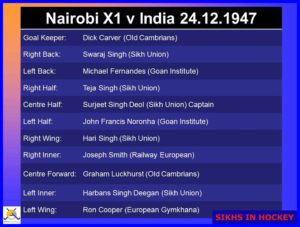
Nairobi XI v India 24.12.1947
All the matches in Nairobi were played at Parklands Sports Club. With the assistance of the military, stands were erected for the spectators for the matches in Nairobi.
The matches in Nairobi were witnessed by such distinguished persons as: H. E. The Governor Sir Philip Mitchell and Lady Mitchell, Major General William Alfred Dimoline, Brigadier General Sir Godfrey Rhodes, Sir Graham Paul, Chief Justice, Tanganyika, Mr J D Rankins, C.M.G., Chief Secretary, Kenya and Mrs Rankine, Sir Richard Woodley, Mayor of Nairobi.
On 24 December 1947, a sundowner, was held at Sikh Union Club Nairobi in honour of the All India Hockey team, which was attended by Brigadier General Sir Godfrey D Rhodes.
During this sundowner, Dhyan Chand, the captain of the All India Hockey Team was made a Patron of Sikh Union Club and the rest of the team and Team Managers were made Honorary Members of the Club. A certificate of Patronage was presented to Dhyan Chand by Jaswant Singh, President of Sikh Union Club and membership cards were presented to the rest of the team.
The team spent Christmas Day and Boxing Day in Nairobi. On Monday, 29th December, they travelled to Nakuru where they played two matches. The first of these matches was against a Nakuru Asian Combined X1 which they won 9-0 and the second one against a Nakuru European Combined X1 which they won 14-1.
The team then travelled to the port city of Kisumu on Wednesday, 31st December 1947, where they played two matches against Kisumu Combined X1, winning the matches 16-0 and 17-0. The team celebrated New Year’s Day in Kisumu. They travelled to Uganda on Saturday, 3rd January 1948 where they played seven matches in Jinja, Kampala and Mbale. The Uganda leg of the tour was organised by the Indian Association of Uganda.
The Indian team played two matches en route back to Nairobi, one in Eldoret on Friday 16th January and one in Kitale on Saturday, 17th January. Five more matches were played in Nairobi, all at Parklands Sports Club. On Monday, 19th January 1948 the Indian team defeated European Hockey Association 10-0 and the following day they defeated the Asian Sports Association 11- 0.
The Asian Sports Association team that played India on Tuesday, 20th January, 1948 was:
Goalkeeper: Avtar Singh Deol (Sikh Union)
Right-back: Swaraj Singh (Sikh Union)
Left-back: Gurdial Singh Toor (Sikh Union)
Right-half: Teja Singh (Sikh Union)
Centre-half: Surjeet Singh Deol (Sikh Union) Captain
Right-half: Kartar Singh (Asian Civil Service)
Right-wing: Hari Singh (Sikh Union)
Right-inner: Bachan Singh (Sikh Union)
Centre-forward: Sat Punja (Asian Civil Service)
Left-inner: Harbans Singh Deegan (Sikh Union)
Left-wing: Dharam Vir (Sikh Union)
On Thursday, 22nd January 1948, they defeated Nairobi Combined team 13-0.
The much-awaited match, against Kenya X1, was played on Saturday, 24th January 1948. Large crowds attended from all over the country to see this match at Parklands Sports Club, Nairobi. India won 5-0.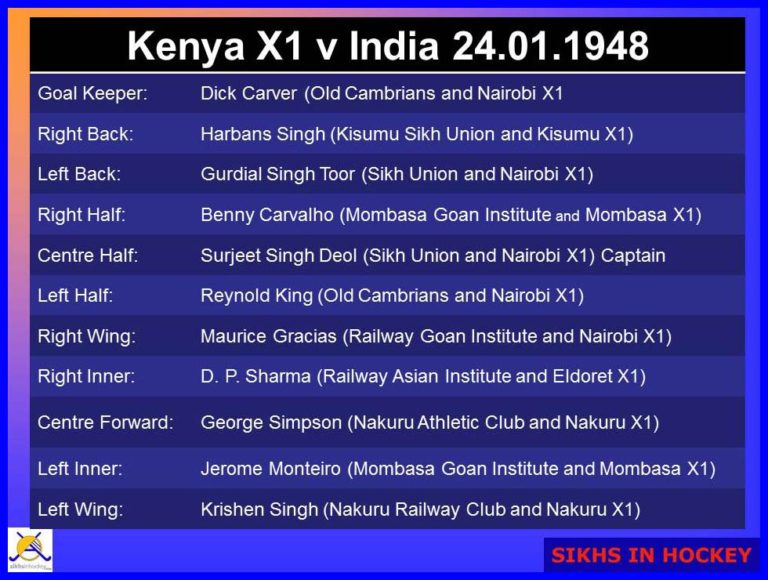
Kenya X1 v India 24.01.1948
The final match in Nairobi was against a Kenya and Uganda X1 on Monday, 26th January 1948 at Parklands Sports Club, Nairobi. India won 7-2.
Only one player from Uganda, Baldev Singh from Kampala was regarded good enough for this combined team which was:
Goalkeeper: Dick Carver (Old Cambrians; Nairobi and Kenya)
Right-back: Harbans Singh (Kisumu Sikh Union; Kisumu and Kenya)
Left-back: Gurdial Singh Toor (Sikh Union; Nairobi and Kenya)
Right-half: Benny Carvalho (MombasaGoan Institute; Coast and Kenya)
Centre-half: Surjeet Singh Deol (Sikh Union; Nairobi and Kenya) Captain
Right-half: Baldev Singh (Kampala and Uganda)
Right-wing: Maurice Gracias (Railway Goan Institute; Nairobi and Kenya)
Right-inner: Graham Luckhurst(Old Cambrians; Nairobi and Kenya)
Centre-forward: George Simpson (Nakuru Athletic Club; Rift Valley and Kenya)
Left-inner: Jerome S Monteiro (Mombasa Goan Institute; Coast and Kenya)
Left-wing: Ron Cooper (European Gymkhana; Nairobi and Kenya)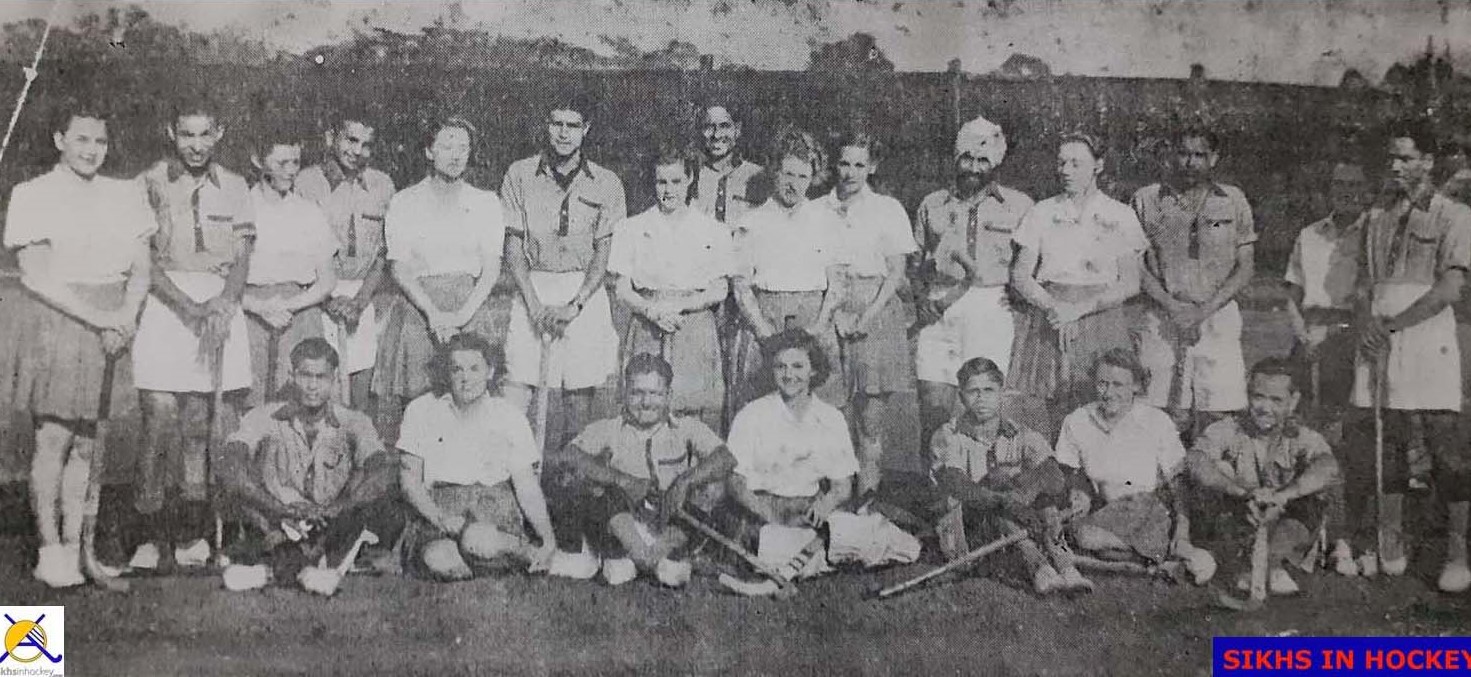
European Hockey Association Ladies Team and Indian team in Nairobi. Photo: K. Arumugam collection
The team then travelled to Tanganyika (now Tanzania) where they played five matches. They defeated Arusha combined 12-0 en route to the capital and port city of Dar-es-Salaam where they heard the news of the assassination of Mahatma Gandhi on 30th January 1948.
In the first match against Dar-es-Salaam combined on Monday, 2nd February, they won 10-2. The Dar-es-Salaam team was Peter Coelho (gk); Jaswant Singh (capt); L. Caldeira; Cooper; Trilochan Singh; James D’Lord; E. Mendes; Hardial Singh; W.R. Varma; Pritam Singh; and John D’Souza.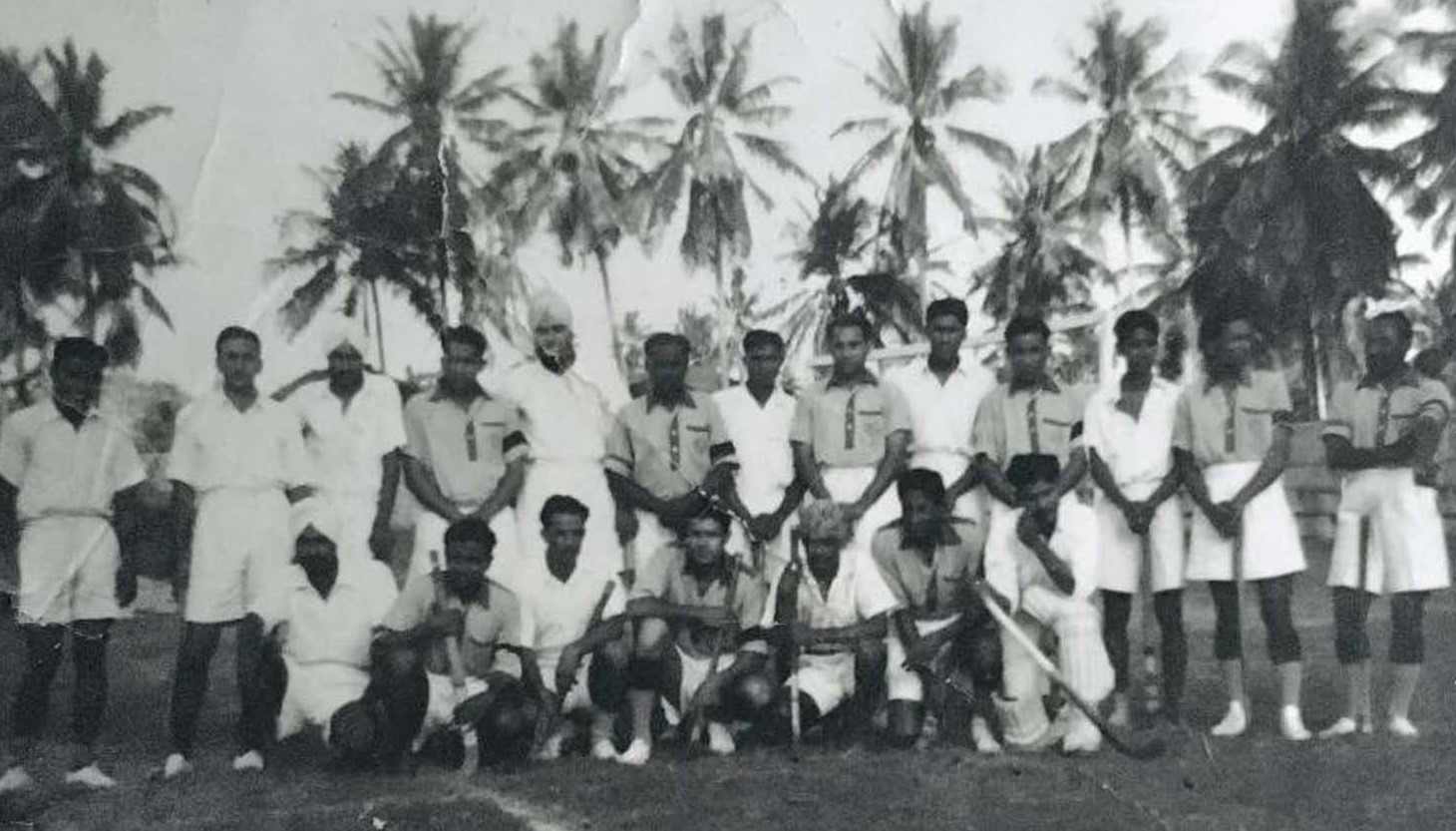
Dar-es-Salaam Combined and India: Dhyan Chand is 6th from left, back row. Pritam Singh of Dar Team is 5th from left, front row Photo: Pritam Singh Sandhu collection.
The following day they defeated Dar-es-Salaam combined 10-0. A match was also played in Zanzibar against Zanzibar Combined which they won 10-0. A final match was played against Tanganyika Combined in Dar-es-Salaam which they won 14-0. The team returned to Mombasa where they played their last match of the tour against Mombasa Combined which they won 5-0.
The team sailed from Mombasa to Bombay on the S. S. Amra on Tuesday, 10th February 1948.
In his report of the tour, Sinha, the manager mentioned “Indians in East Africa, especially Mr Mahan Singh, President of the Asian Sports Association, our sponsor, and his colleagues were very kind and generous. In many places we were accommodated by local Indian residents in their own homes and we came to know intimately their way of life”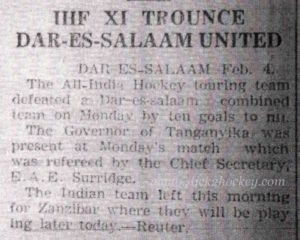
Another win.
At the Annual General Meeting of Sikh Union Club in 1948, the minutes recorded: “Mr Mahan Singh whilst on leave in India, as the President of the Asian Sports Association shouldered the responsibility of inviting the All India Hockey Team to visit East Africa. It is a great venture in his career – the visit will be remembered forever in the history of Kenya – and he deserves a special mention for his untiring effort to bring this tour to a great success. The Management wish to congratulate him for this great achievement”.
LEGACY
As a result of this historical tour, Hockey in Kenya went from strength to strength. Kenya became a powerhouse in world hockey in the 1960s and 1970s. On 2nd June, 1949, the Kenya Hockey Union was formed with Brigadier General Sir Godfrey Rhodes elected president, W. Boddy and E. I. Gledhill vice-presidents, Mahan Singh Sandhu, secretary and G.N. Shah, treasurer. F.W. Carpenter and Harbans Singh Sehmi were elected as council members. All these personalities had been instrumental in the successful tour by the Indian team.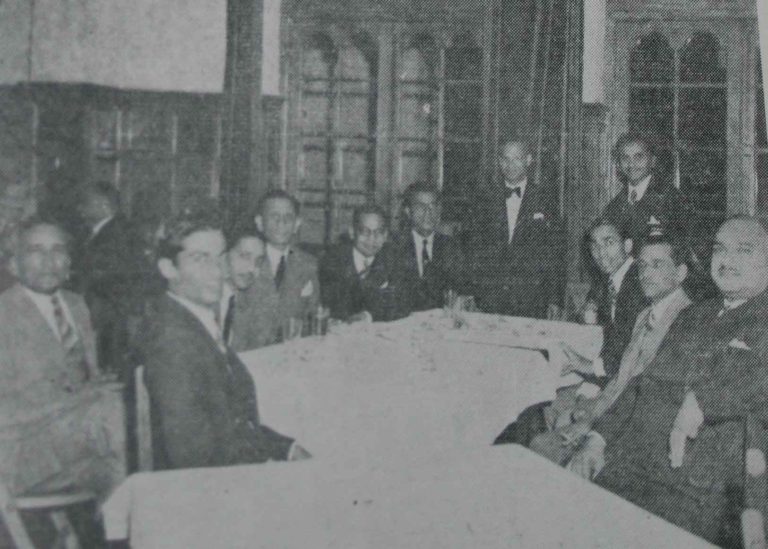
The legacy continued..Indian team in Nairobi, Circa 1950. K Arumugam collection
The inaugural meeting was attended by 18 hockey-playing clubs in Kenya viz:
1.The Goan Institute, Nairobi
2. Asian Civil Service Club, Nairobi
3. Old Cambrian Society, Nairobi
4. Railway Goan Institute, Nairobi
5. R.A.F. Eastleigh, Nairobi
6. Vagabonds, Nairobi
7. Parklands Sports Club, Nairobi
8. Gymkhana Club, Nairobi
9. Sir Ali Muslim Club, Nairobi
10. 401 Command W/Shops and REME, Nairobi
11. Goan Gymkhana, Nairobi
12. Railway Indian Institute, Nairobi
13. Caledonian Hockey Club, Nairobi
14. The Sikh Union, Nairobi
15. The Sikh Union, Mombasa
16. Command H.Q. Officers – Harlequins
17. Command H.Q. W/Os & Sgts.
18. Oswal Sports Club, Nairobi.
The following Associations were approved for membership of Hockey Association of Kenya: The Asian Sports Association; The European Hockey Association of Kenya and The Kenya Goan Sports Association (The Coast Hockey Association, Mombasa and Nakuru Sports Association, Nakuru were approved on 12.6.1950).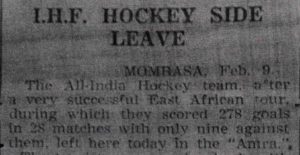
Paper cutting on EA tour
One of the first tasks of the newly formed association was to build a stadium. Application for constructing a hockey stadium in Nairobi was submitted on 5th September 1949, just three months after the formation of the Association. Nairobi City Hockey Stadium (now known as City Park Hockey Stadium) was completed on 16th October 1950. The Indian Hockey team visited Kenya again from 16 December 1950 to 11 January 1951 and played their matches in Nairobi at City Hockey Stadium. The Kenya team defeated the British & Irish team 3-2 at this new stadium on 20 September 1951.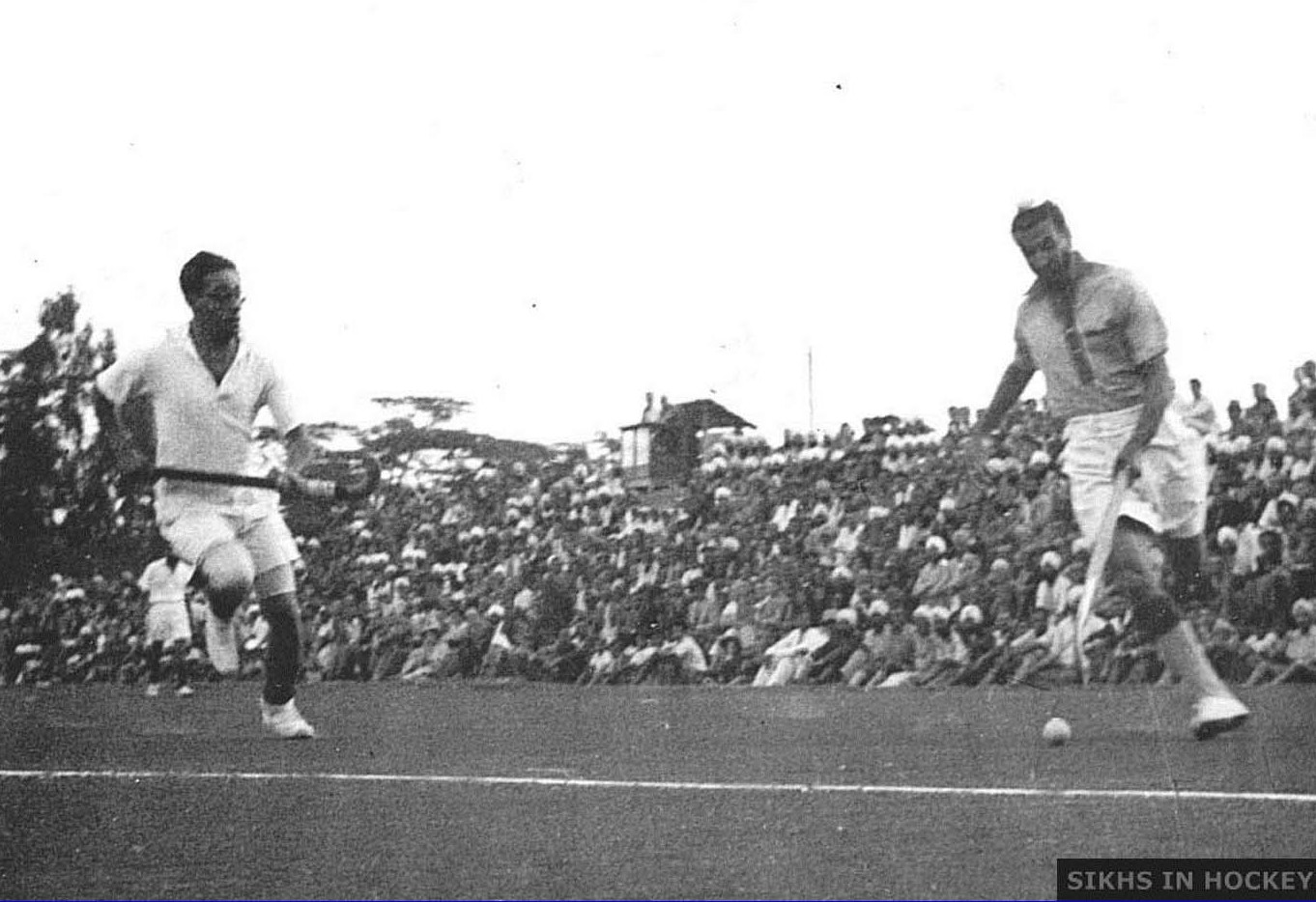
India’s Gurbachan Singh (right) and Sikh Union’s Swaraj Singh (left) at the newly built City Park Stadium in 1950. Sikhs in Hockey / Dil Bahra
Hockey Association Kenya was affiliated to the International Hockey Federation (F.I.H.) in 1950.
Mahan Singh Sandhu went on to the become coach of Kenya’s team at the Melbourne 1956 Olympic Games and President of Kenya Hockey Union in 1957. Later on he became coach of the Kenya women’s team and has been regarded as “Father of Kenya Hockey”.
Surjeet Singh Deol who captained Nairobi XI, Kenya and Kenya & Uganda team during this visit by the Indian team went on to captain Kenya at the Melbourne 1956 Olympic Games and also played at the Rome 1960 Olympic Games.
Pritam Singh Sandhu, who played for Dar-es-Salaam against India on 2nd February 1948, at the age of 17, went on to represent Kenya at the Rome 1960 Olympic Games. He was Kenya’s Team Manager at the Los Angeles 1984 Olympic Games. He played for Sikh Union Nairobi and was elected chairman of Kenya Hockey Union from 1988-1992.
Gurdial Singh Toor who played for Kenya during the tour match moved to Uganda and captained Uganda during India’s tour of East Africa in 1959. He later became an FIH Umpire.
Harbans Singh Sehmi, who was the secretary of the Liaison Committee for the tour, was selected as Chef de Mission for Kenya at Tokyo 1964 Olympic Games.
Stick2Hockey.com